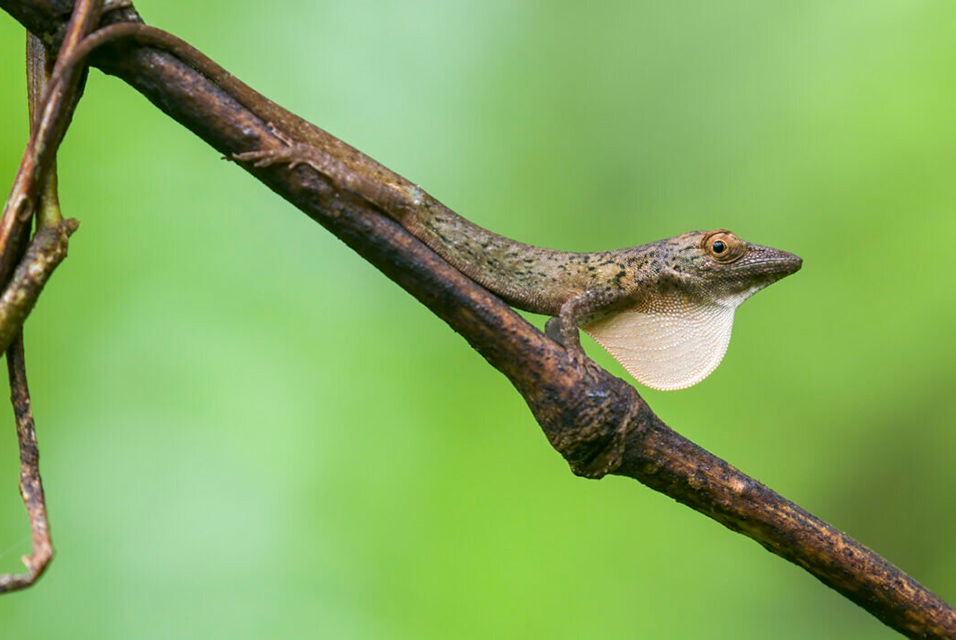ST. LOUIS, MO.- Islands are hot spots of evolutionary adaptation that can also advantage species returning to the mainland, according to a study published the week of Oct. 11 in the Proceedings of the National Academy of Sciences.
Islands are well known locations of adaptive radiation, where species diversify to fill empty niches. In contrast, species that evolved on islands are thought to be evolutionarily disadvantaged when attempting to recolonize the mainland.
Jonathan B. Losos, the William H. Danforth Distinguished University Professor, professor of biology in Arts & Sciences and director of the Living Earth Collaborative at
Washington University in St. Louis, is senior author of the new study.
Losos and his colleagues used a time-calibrated phylogeny and measurements of relevant ecological and morphological traits of neotropical anoles (Anolis spp.) to explore the collision of island and mainland adaptive radiations.
Anolis lizards originated in South America, colonized and radiated on various islands in the Caribbean and then returned and diversified on the Central American mainland. All of the Anolis groups exhibited significant adaptive radiations, but the results suggested that they followed different evolutionary paths.
The island Anolis species, and to a lesser extent the ancestral species, experienced higher initial rates of evolution as ecological niches were filled. In contrast, the Anolis species that recolonized the Central American mainland from the islands diversified ecologically without developing significant morphological differences between species.
When the Isthmus of Panama reconnected the two mainland groups, the recolonizing Central American Anolis species outcompeted the ancestral South American Anolis species, contrary to expectations.
According to Losos, rather than being evolutionary dead ends, islands are cauldrons of evolutionary innovation and diversification.
"The traditional thinking is that plant and animal groups that evolve on islands can't invade the mainland because the mainland has more species, and thus a more competitive biotic milieu due to higher rates of competition, predation, parasitism, etc.," Losos said. "So the idea is that species on islands aren't 'tough' enough to cut it on the mainland.
"In recent years, many studies have documented contradictory examples of island species successfully invading the mainland," Losos said. "Ours goes further by showing that island species not only can invade, but diversify greatly."









